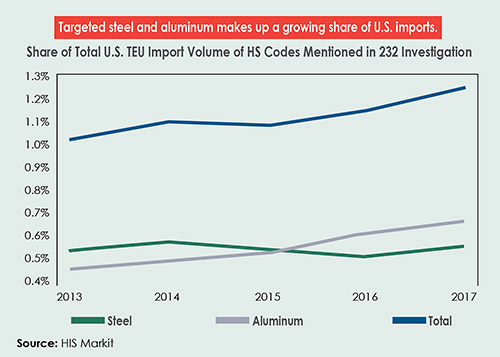



Section 232 investigations can be initiated by an interested party, a request from a department or agency head, or may be self-initiated by the Secretary of Commerce. Commerce then will conduct an investigation into specific product imports and present its findings and recommendations to the President. If the imports are determined to threaten U.S. national security,1 the President has 90 days to determine whether he agrees and then may adjust import restrictions accordingly. The statute notably does not place a limit on the nature of trade remedy restrictions or set out a limit on the tariffs to be implemented.
Section 232 national security investigations have been initiated judiciously in the past. There have only been 14 investigations conducted by Commerce since 1980, and very few have resulted in Executive actions that serve to restrict imports. However, in April 2017, President Trump requested that the Department of Commerce initiate a Section 232 investigation into whether steel and aluminum imports were threatening U.S. national security. Due to excess international steel and aluminum production, global markets have been flooded in recent years, leading to U.S. import volumes far above historical levels.

Author:
Ms. Bonnie Liu
Phone/WhatsApp:
이 업체에게 이메일로 보내기
Author:
Ms. Bonnie Liu
Phone/WhatsApp:
October 22, 2018